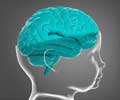Traumatic brain injury is associate with long-term psychological outcomes and reduced longevity.

TOP INSIGHT
Preventing traumatic brain injury, which otherwise causes premature death, would improve longevity and promote positive long-term psychological outcomes.
To uncover broader risks associated with TBI, Fazel and colleagues compared premature mortality and long-term psychosocial outcomes between the roughly 100,000 people born in Sweden between 1973 and 1985 who sustained at least one TBI before age 25 years, and their unaffected siblings, who were followed up until age 41.
The researchers found that TBI consistently predicted later risk of premature mortality, psychiatric inpatient admission, psychiatric outpatient visits , disability pension, welfare recipiency and low educational attainment in the sibling-comparison analyses, and the effects were stronger for those with greater injury severity, recurrence, and older age at first injury.
The datasets used may include some misclassification, and despite the sibling-comparison design the associations may be confounded by shared factors other than TBI.
Nonetheless, Fazel and colleagues' estimates are likely conservative and suggest that the public health benefits of preventing TBI include longevity and psychosocial outcomes.
In an accompanying Perspective, Donald Redelmeier and Sheharyar Raza discuss the study design, limitations, and theories for the mechanism by which TBI could cause adverse long-term psychosocial consequences.
Source-Medindia
 MEDINDIA
MEDINDIA




 Email
Email










